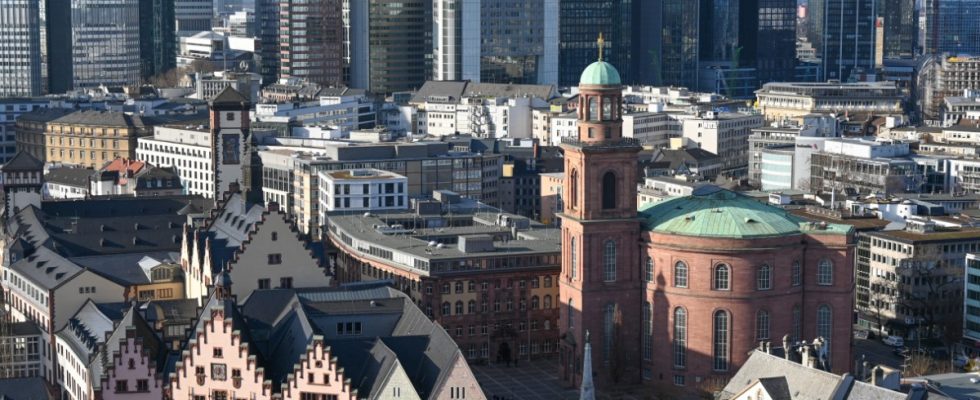Less hustle and bustle on the stock exchange: Road traffic around the Frankfurt trading center will soon be slowed down. From the beginning of December, the 20 km/h speed limit will apply in parts of the city center, and at the same time there will be no parking spaces on the side of the road. This should lead to less car traffic in the center. It is also a sign of a cultural change – away from prioritizing cars.
Environmental associations have long been calling for buses, cyclists and pedestrians to be given more space in traffic. The Automobile Club of Germany (AvD) warns of existential consequences for retailers. The ADAC simply warns that there are enough parking spaces in parking garages and points out that the traffic rules are changing: In 20 km/h zones, all road users have equal rights, and accordingly there are no longer any crossing aids such as zebra crossings or traffic lights.
Frankfurt’s head of traffic, Wolfgang Siefert (Greens), emphasizes that the goal is not a car-free city center, but rather a car-poor city center. The speed limit is only planned on side streets; Through traffic should continue to flow on the main roads. The legal basis for the slow pace is the arrangement of so-called traffic-calmed business areas.
Ultimately, the fundamental question is once again being discussed in Frankfurt: Who owns the city? A dispute that is at least as old as the car itself. At the beginning of the 20th century in England, a warning runner with a red pennant had to run in front of the rattling automobile – 20 kilometers per hour in the city would have been unimaginably fast.
When motorization began, everything trotted, rolled or walked wildly. Then cities gradually became more and more car-friendly. The acceleration of car traffic was seen as a sign of modern urbanity.
There are 20 million commuters: a new high
Today, cities are in a dilemma: Despite all the climate debates and crises, the car fleet in Germany is growing faster than the population. The number of registered cars is approaching the 50 million mark for the first time. One driver of this growth is the increasing number of commuters – a result of rising rents in cities and the opportunity to work from home. More than 20 million people in Germany travel beyond municipal boundaries to work. A new high, like a Evaluation by the Federal Institute for Building, Urban and Spatial Research shows.
This also increases the conflict of interests: those who live in the city want less car traffic. If you’re commuting, you don’t want to sneak through the city at 20 or 30 km/h.
The “Shared Space” movement demands exactly that: “Drive slower so you can get through the city faster.” City planners have been dismantling traffic lights and traffic signs and leveling curbs in European cities for two decades. The shared public space means nothing other than bringing people back onto the streets as mobile traffic obstacles: “Risk creates safety,” the “Shared Space” movement is convinced.
Frankfurt’s new 20 km/h zones are a step in this direction. But the city remains cautious, it wants to calm the traffic slowly and block by block.

